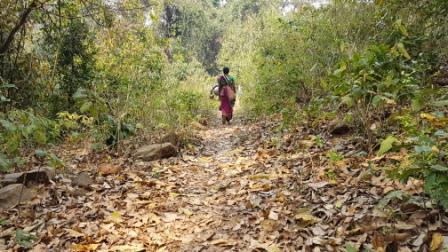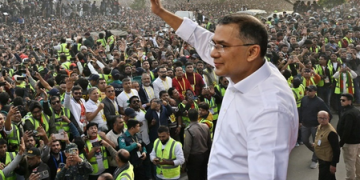Keonjhar: A recent study by the New Delhi-based think tank, Centre for Science and Environment (CSE), claims that Keonjhar has bagged the lion’s share – 43 per cent – of Odisha’s total District Mineral Foundation (DMF) funds, collected from miners but the constituency evinces no sign of development commensurate with the funds allocated to the mineral-rich district.
With the ‘go-ahead’ from the state government several miners had undertaken large-scale exploration of mineral resources in the area in the last 20-years and garnered profits but a large number of the electorate in the district still live in penury thanks to the administrative apathy of the authorities.
A visit to some mining areas of the district revealed that tribal communities residing in rural Keonjhar are forced to drink water from pits, unclean ponds and rivulets in the absence of basic civic amenities.
Baragoda and Baitarani villages in Banspal block and several villages in Telkoi block are still struggling to get clean drinking water sources like hand-pumps or piped water connections. A number of villages do not have access to clean drinking water and the villagers are forced to drink from dirty pits, ponds and hill streams. Formal drinking water projects seem to have lost their way in the cluttered files of the bureaucrats.
“We bathe, wash clothes and utensils in the village ponds. Several people drink water from the same source too. Sometimes we dig percolated pits to draw water for drinking. The single hand-pump in the village frequently goes for a toss in summer. No official ever cares for us,” said Balia Gada, a villager from Talabaitarni.
The fate of Baragoda in Banspal block ia no different. Here women used to trek miles to fetch water from a rivulet. “Although our kids suffer diarrhoea and get infected, we are forced to drink water from hill streams. There is no functional hand-pump or piped water supply scheme for us,” said Patali Juang.
The deprivation in terms of drinking water is severe in Telkoi area where the Rural Water Supply and Sanitation Office has failed to address the woes of the villagers.
Even the Centre’s National Drinking Water Project like Swajaldhara also failed to help the water-starved areas of the mines-rich constituency. Even the state Cabinet has recently approved investment of Rs 980 crore for drinking water projects in this constituency.
The district claims close to Rs 25000 crore from the DMF funds. Such amount, as per norms, should have been invested for drinking water projects, education and health as compensation by miners for the people whose mineral resources are being exploited.
According to an NGO working in the region, due to heavy mining activities ground water in many villages is dwindling and affecting the smooth flow of water. A large part of the DMF lies unutilised in the district while the people continue to suffer in silence.
Art of Delay
By Dilip Cherian It’s telling that Punjab is still kicking the can down the road on appointing a regular Director...
Read moreDetails




































